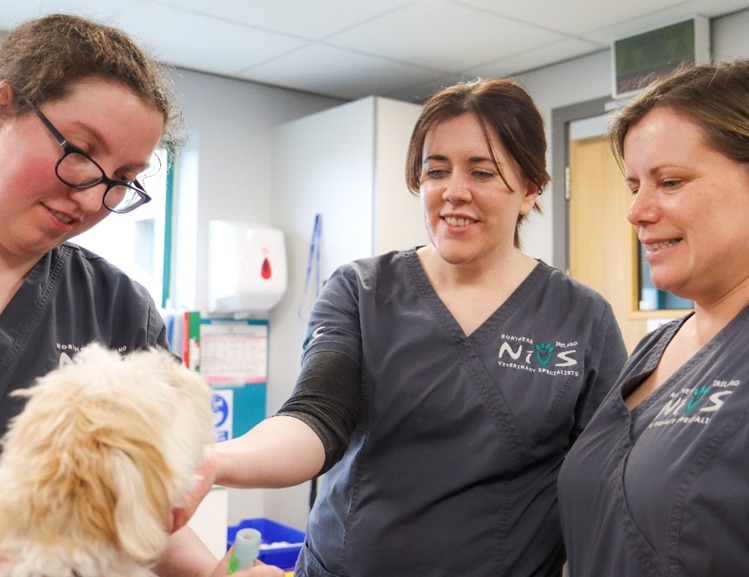
The dog was treated with a balloon dilation technique
Team At NiVS Tackle An Oesophageal Stricture In A Shih Tzu
Thanks to a multidisciplinary effort by the team at Northern Ireland Veterinary Specialists, a two-year-old male Shih Tzu has successfully undergone treatment for an oesophageal stricture that developed after the removal of a foreign body.
The dog first presented to Alison Irwin, who heads up the Internal Medicine department at NiVS, with a week-long history of anorexia, hypersalivation, and repetitive swallowing - symptoms that began shortly after an episode of acute choking while eating liver. Upon examination, the dog appeared depressed and dehydrated, exhibiting frequent swallowing attempts and noticeable hypersalivation.
Diagnostic tests revealed signs of reactive hepatopathy and mildly elevated bilirubin levels, raising concerns of potential sepsis. Additionally, severe inflammatory responses were evident in blood tests, and a soft tissue radiopacity near the heart suggested an oesophageal foreign body. Alison performed an endoscopy confirming the presence of the foreign body in the oesophagus and successfully removing it.
However, ten days post-removal, the dog began regurgitating food shortly after eating and a subsequent endoscopy was performed to localise and visualise the meatus of the oesophageal stricture. A fibrous ring was visible but there was no evidence of significant oesophageal ulceration.
Alison then called upon the expertise of her colleague and Specialist in veterinary cardiology, Julie Hamilton Elliott who treated the dog with a balloon dilation technique. A microvascular balloon catheter was used to expand the narrowed oesophageal section under fluoroscopic guidance, significantly improving the passage without any complications of bleeding or mucosal tearing. Following the procedure, the dog was put on a short regimen of anti-inflammatory steroids and switched to a liquid diet and showed no further signs of regurgitation.
Alison said: “Cases such as this really highlight the importance of early detection and prompt treatment in cases of oesophageal foreign bodies to prevent severe complications such as the one experienced by this Shih-tzu.”
She added, “Success rates of balloon dilation are reported between 77-88%, however definition of success varies between studies making direct comparison difficult, but I’m so pleased that this dog is recovering well, and I’d really like to thank Julie and the exceptional team of nurses here at NiVS who assisted me with this challenging yet rewarding case.
Northern Ireland Veterinary Specialists (NiVS), established in 2019 as Northern Ireland’s first multidisciplinary Specialist-led small animal referral hospital offering services in Orthopaedics, Soft Tissue Surgery, Internal Medicine and Cardiology with Julie Hamilton Elliott who is the only EBVS® and RCVS specialist cardiologist offering the only full-time specialist-led medical and interventional cardiology service for the island of Ireland. For more information and to read the full case report, visit: www.nivetspecialists.co.uk
More from CVS UK Ltd
- Lumbry Park referrals recruits new Hospital Director
- World-wide study reveals new clinical insights into feline hypoadrenocorticism
- CVS upskills RVNs to undertake diagnostic imaging in practice
- New research evaluates use of 3D-printed guide for treatment of distal tibial varus deformity
- Falmouth vets recognised for outstanding work

 5 months ago
5 months ago  473 views
473 views

 1 week ago
1 week ago